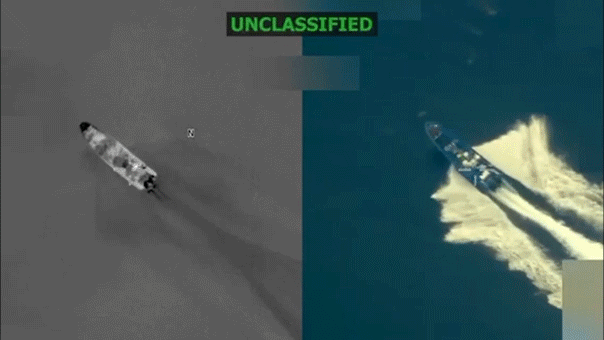U.S. Strike Leads to Major Drug Bust in Dominican Waters: Collaborative Efforts Yield Significant Results
In a remarkable demonstration of international cooperation against drug trafficking, the Dominican Republic recently confirmed that a vessel targeted by a U.S. airstrike was carrying approximately 1,000 kilograms (over 2,200 pounds) of suspected cocaine. This joint operation, described as the first of its kind between the two nations in the Caribbean region, highlights a strengthened approach to combating narcotics trafficking that threatens communities in both countries. The Dominican National Drug Control Directorate, working alongside their navy, successfully seized hundreds of packages of the suspected narcotic following the American strike on the speedboat, with the contents being transferred under strict chain of custody protocols to the National Institute of Forensic Sciences (INACIF) for definitive testing and precise weight determination.
The operation unfolded after intensive intelligence sharing between Dominican authorities, the United States Southern Command (Southcom), and the Joint Interagency Task Force South (JIATF-South). These agencies collectively identified a “Go Fast” type speedboat loaded with narcotics heading toward Dominican territory. According to officials, intelligence indicated that traffickers intended to use the Dominican Republic as a transit point before ultimately moving the drugs to the United States, following a well-established pattern used by trafficking networks throughout the Caribbean. This interception represents a significant disruption to the supply chain of dangerous substances making their way to American streets, potentially saving countless lives from the devastating impacts of addiction and drug-related violence.
This operation appears to be part of a broader initiative by the current administration to aggressively target drug trafficking operations in international waters. President Donald Trump has ordered several similar strikes on vessels this month alone, signaling an intensified approach to disrupting the flow of narcotics into the United States. The president’s direct involvement in authorizing these operations demonstrates the priority his administration places on addressing what it considers a critical national security concern. These actions reflect a policy that treats drug trafficking not merely as a law enforcement issue but as a form of “narcoterrorism” that warrants decisive military response when appropriate circumstances arise and intelligence confirms the presence of significant quantities of dangerous substances.
The president made his position unmistakably clear with a forceful warning posted on his Truth Social platform following one of the recent strikes: “IF YOU ARE TRANSPORTING DRUGS THAT CAN KILL AMERICANS, WE ARE HUNTING YOU!” This unambiguous message to traffickers represents a departure from more traditional approaches to drug interdiction, with the administration seemingly prepared to use lethal force when necessary to prevent narcotics from reaching American shores. The Dominican Republic’s willingness to publicly acknowledge and support these operations suggests a growing international consensus around more aggressive tactics against high-value drug shipments, particularly when intelligence can clearly establish the nature and destination of suspicious vessels in international waters.
The substance targeted in this operation—cocaine—remains one of the most destructive narcotics in circulation, described in U.S. government materials as “an intense, euphoria-producing stimulant drug with strong addictive potential.” Health officials continue to warn about the rapid development of tolerance to cocaine’s effects, which typically leads users to consume increasingly higher doses, creating a dangerous cycle of escalating use and dependency. The ton of cocaine seized in this operation would have had an estimated street value in the tens of millions of dollars and represented enough of the drug to potentially impact thousands of individuals across multiple communities. Beyond the immediate impact on users, cocaine trafficking fuels violence, corruption, and instability throughout the Americas, making interdiction efforts like this one crucial to addressing broader regional security concerns.
This unprecedented joint operation between the Dominican Republic and United States signals what may be a new chapter in counter-narcotics cooperation in the Caribbean region. While both countries have long worked together on drug interdiction efforts, the direct military component represented by the airstrike indicates a willingness to employ more decisive tactics when circumstances warrant. As trafficking organizations continue to adapt their methods and routes, this evolution in bilateral cooperation could represent an important development in maintaining pressure on criminal networks that profit from addiction and human suffering. The successful recovery of such a significant quantity of narcotics serves as tangible evidence that international cooperation, combined with appropriate use of military assets, can yield meaningful results in the ongoing battle against drug trafficking organizations operating in the Caribbean basin.















